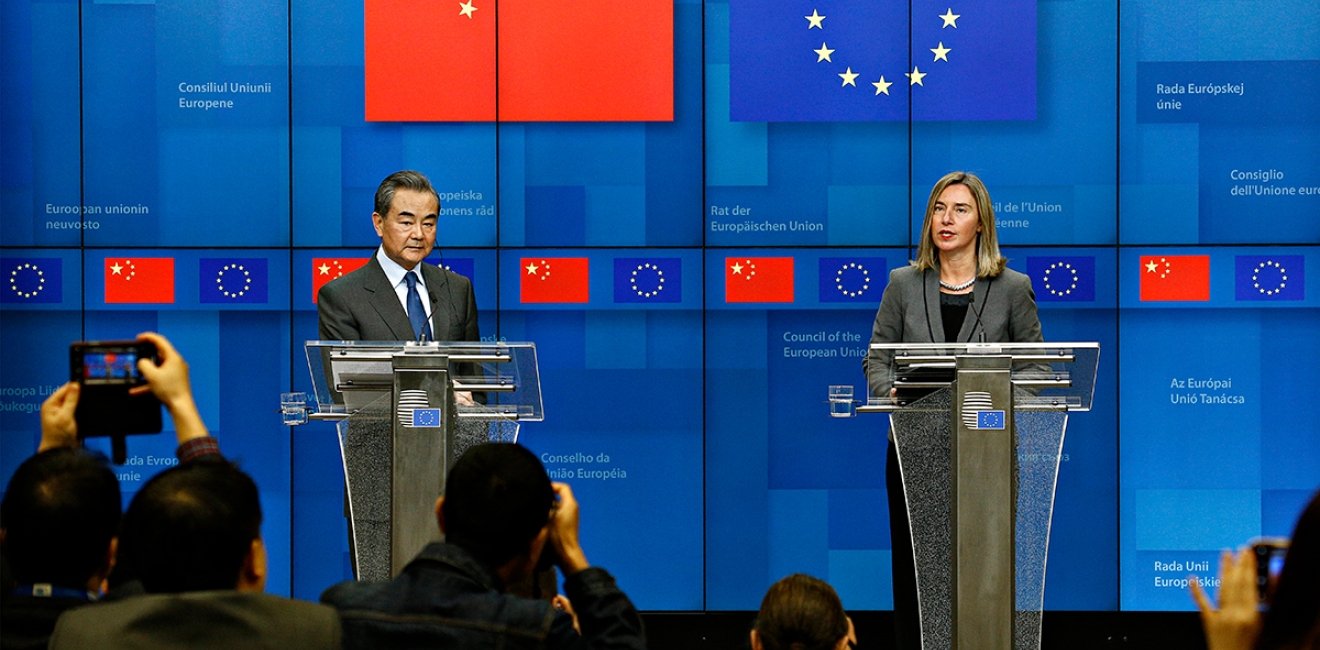
A blog of the Indo-Pacific Program
Washington’s winters may or may not be harsher in recent years as a result of climate change. But in spite of all the concerns about weather pattern changes impacting nature, the city’s cherry blossoms have proven resilient to the volatility, this year being no exception. With the blossoms come another enduring fixture of springtime in Washington: the spring meetings of the IMF and the World Bank. Like the flowers, the message from the meetings too has been quite predictable.
That the ongoing trade war between the United States and China is increasing the risks to global growth is certainly not an unexpected insight. Nor is wariness about the spillover effect of Brexit across the English Channel to the European continent and beyond. In its latest annual World Economic Outlook, the IMF also pointed to risks in China as well as Argentina and Turkey as particularly notable destabilizers, but such concerns too had already been factored in by the IMF since last year. Nonetheless, the report’s cautionary outlook is worrisome given that the IMF’s findings have not accounted for even more negative factors that have emerged over the past week.
The U.S. decision to expand its trade conflict with Europe, even as it continues to seek concluding a deal with China by the G20 meeting in June is certainly one such new risk. The dispute over aviation subsidies by Washington and Brussels to Boeing and Airbus respectively has been going on for over a decade. But the White House’s decision to hit the EU with $11 billion in tariffs, well beyond the aviation sector let alone just against Airbus, comes at a time when the EU continues to grapple with the ongoing Brexit crisis. The EU is expected to retaliate in kind, which would further pressure on already businesses on both sides of the Atlantic.
Meanwhile, the EU has been able to sign a deal with China that would no longer require forced technology transfer when European countries invest in China.
Meanwhile, the EU has been able to sign a deal with China that would no longer require forced technology transfer when European countries invest in China. Critics would argue that China has now succeeded in acquiring the technological know-how that it needs from Europe, and would no longer benefit from acquiring knowledge from their European counterparts as they once had. That may or may not be the case. But what is clear is that both Brussels and Beijing recognize the fact that while the rivalries between the two sides continue to increase, interdependence continues to rise as well. Certainly, the more confrontational tone from Europe last month following Xi Jinping’s visit to Paris to meet with Angela Merkel, Emmanuel Macron, and Jean-Claude Juncker positioning China as a “systemic rival” as well as an “economic rival” was not apparent.
Thus the EU is moving forward with its plans as outlined in its report EU-China: A Strategic Outlook, to identify China as “a cooperation partner with whom the EU has closely aligned objectives, a negotiating partner with whom the EU needs to find a balance of interests, an economic competitor in pursuit of technological leadership, and a systemic rival promoting alternative models of governance.”
Whether the EU will indeed be able to manage that three-prong balancing act in its relation to China will be closely watched particularly by countries such as Japan that also have to strike a delicate balance in dealing with Beijing. For Tokyo, the challenge will be whether it can continue to further economic relations with China on the one hand, while seeing the country as its major security threat on the other.
For the United States, the question remains whether the latest step forward by the EU to reach a deal with China on the critical issue of technology transfer will finally allow Washington to strike a trade deal that it deems a win.
Image: Alexandros Michailidis / Shutterstock.com
Follow Shihoko Goto, deputy director for geoeconomics and senior associate for Northeast Asia, on Twitter @GotoEastAsia.
The views expressed are the author's alone, and do not represent the views of the U.S. Government or the Wilson Center. Copyright 2019, Asia Program. All rights reserved.
Author


Indo-Pacific Program
The Indo-Pacific Program promotes policy debate and intellectual discussions on US interests in the Asia-Pacific as well as political, economic, security, and social issues relating to the world’s most populous and economically dynamic region. Read more





